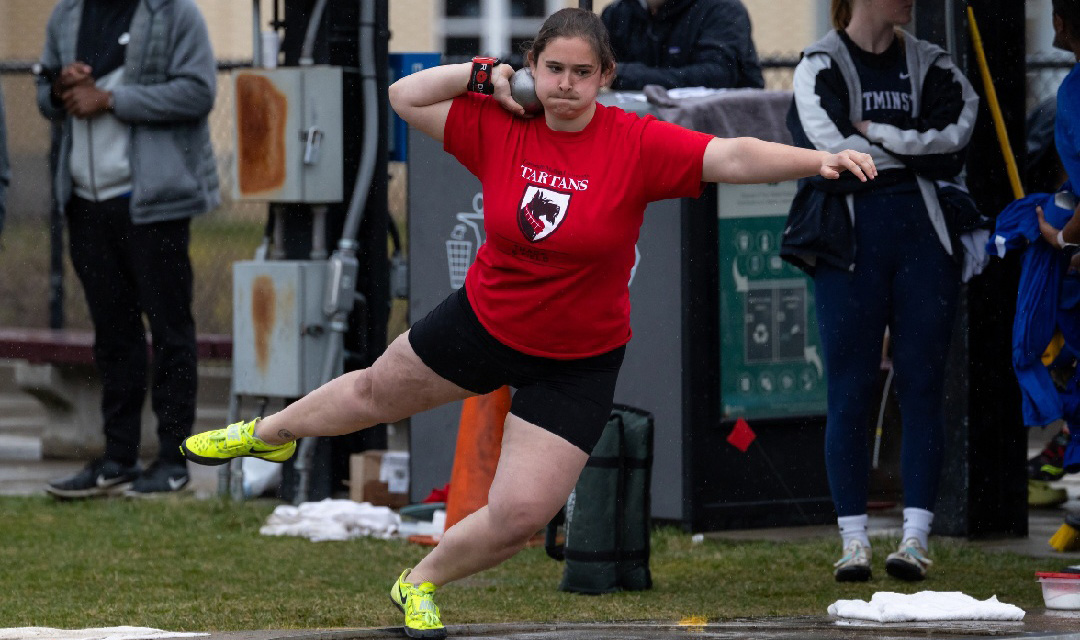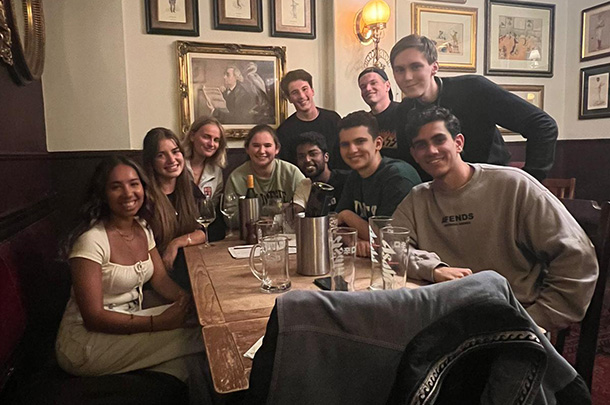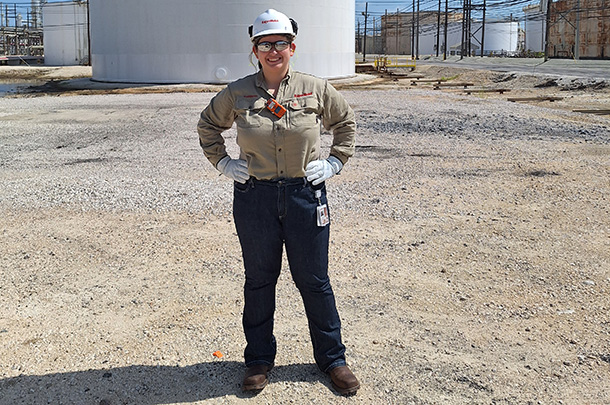Student spotlight: Katie Monahan
Lauren Smith
Apr 29, 2025

Source: Katie Monahan
Katie Monahan's day is always better after track practice. "I really enjoy having a break to be outside, be with friends, and be active," she says.
Monahan typically has throwing practice five days a week and weightlifting three days a week all academic year. In the spring semester, she has a track meet almost every weekend. "It's a big time commitment," she says. "I had to step up my time management to balance my chemical engineering courses."
Her dedication has reaped rewards. Monahan holds the school record in indoor and outdoor shot put and is on the top five list in weight and discus. She has placed at regional competitions and conference championships.
With only a little throwing experience when she joined the team, Monahan is grateful for the coaching she has received at Carnegie Mellon. Head coach Gary Aldrich was the men's throws coach for USA Track and Field at the 2021 and 2024 Olympics.
"There's a stereotype that throwers are big and strong and just muscle stuff out there," says Monahan. "People don't always realize the technique that goes into each type of throw, on top of the weightlifting and agility training."
When Monahan went to Imperial College London her junior year, she took up a new sport to stay active: rugby. Before she joined the team, she had never even watched a rugby match. She was surprised to learn that she could only pass the ball backwards.

Source: Katie Monahan
Katie Monahan (seated at the end of the table) with other chemical engineering study abroad students at a pub in London
As she immersed herself in British culture and got to know local and international students, Monahan also had to adapt to a different learning style and course style at Imperial. One of the reasons Monahan chose to study there was the carbon capture pilot plant located in the center of the chemical engineering department. She spent a week in the plant for a group project.
After learning about the carbon capture process used in the pilot plant, Monahan's group wrote a startup procedure and a shutdown procedure for the plant. "We had to take into account what gas streams to open up first, as well as what should and shouldn't be running when starting up a specific part of the process," says Monahan.
On the last day of the week, the group split into two teams to run their procedures. Monahan was on the startup team. They followed their written procedure, and each time they found an error, they had to do an emergency shutdown in the plant to resolve it safely. Their professor also simulated disasters for them to address, like turning on gas streams that were supposed to be off.
After the plant was running, Monahan's startup team had ten minutes to hand off the project to the shutdown team. "We had to make sure that we were communicating everything that we had done, the problems we ran into, and the things we learned," says Monahan. Following their week in the pilot plant, Monahan's team wrote a debrief report to improve their procedures.

Source: Katie Monahan
Katie Monahan during her internship at the ExxonMobil facility in Beaumont, Texas
That hands-on experience, together with her chemical engineering courses at Carnegie Mellon, is preparing Monahan to work in industry. "The Junior Chemical Engineering Seminar covers a lot about how operators and process engineers deal with problems that pop up in a plant, like runaway reactions and temperature and pressure issues," she says. Faculty have restructured the course recently to focus on safety.
In Chemical Process Systems Design, Monahan worked with a team to design a plant to recycle polyolefins, a type of plastic. "For each stage in the process, we had to think about how it works, how to set things like temperature, pressure, and flow rate, and how to keep those consistent so that the process runs completely," she says. The project gave her a much more detailed view of systems coming together in a plant and the economic considerations in trying to make a process profitable.
Because of her chemical engineering courses, Monahan feels ready to hit the ground running when she enters the workforce. She has accepted a job as a process engineer at ExxonMobil in Beaumont, Texas, where she interned after her sophomore year.
"I'll be able to do really hands-on work in the refinery, overseeing a particular part of the process and monitoring trends and safety," she says. Monahan enjoys hands-on work at the larger scale found in industry and is excited for the challenges in communicating that larger scale to others.
